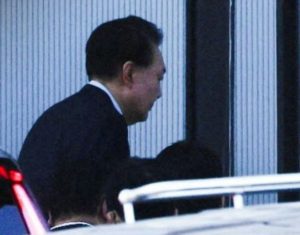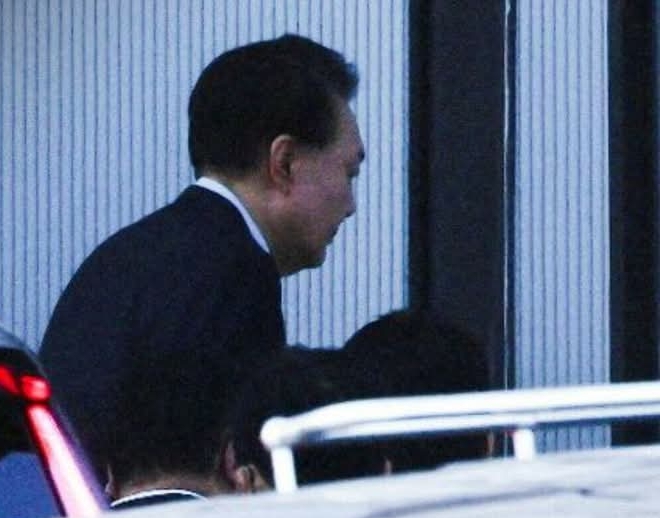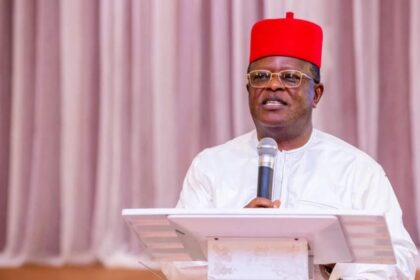
By Adeyemi Adekunle
South Korea’s President Yoon Suk Yeol was arrested on Wednesday following a second police raid on the heavily guarded presidential residence. Yoon, who attempted to impose martial law last month in a controversial move to consolidate power, is now facing charges of insurrection—a crime that carries the possibility of life imprisonment or even the death penalty.
The former prosecutor and leader of the conservative People Power Party (PPP), Yoon rose to power in 2022 amid promises of reform and economic progress. However, his dramatic bid to enforce martial law, reportedly aimed at curtailing civil unrest, led to swift political fallout and calls for his resignation. Critics accuse Yoon of undermining democracy in a country that prides itself on its hard-won freedoms.
For weeks, Yoon avoided arrest by taking refuge in his fortified residential compound, shielded by loyal members of the Presidential Security Service (PSS). His eventual apprehension followed heightened tensions, with investigators emphasizing their commitment to holding even the nation’s highest office accountable to the law.
Yoon’s brief statement before his arrest indicated an effort to avoid further violence. “I will cooperate fully with investigators to prevent any bloodshed,” he said. However, during questioning, he invoked his right to remain silent—a decision that has drawn further scrutiny from both political allies and opponents.
This case marks a watershed moment in South Korea’s political history. The arrest of a sitting president underscores the nation’s evolving political landscape and its stance on holding public officials accountable. Political analysts suggest Yoon’s insurrection charges could deepen partisan divisions within the country, testing the resilience of South Korea’s democracy.
Internationally, the arrest has drawn significant attention. South Korea, known for its peaceful transfers of power and rule of law, now faces intense scrutiny regarding the stability of its political institutions. Global leaders have expressed concerns over the implications for South Korea’s regional standing and the broader state of democracy in East Asia.
Yoon’s trial, expected to commence later this year, could be among the most closely watched judicial proceedings in the nation’s history. As investigators delve deeper into the events surrounding his martial law bid, the case raises vital questions about the balance between security and civil liberties in a democracy.
For the South Korean people, the arrest signals a complex reckoning. While many view the development as a reaffirmation of the rule of law, others express unease about the social and political tensions it may ignite.
Yoon Suk Yeol’s rise and dramatic fall pinpoints the fragility of political power and the enduring need for transparent governance. The nation awaits the unfolding of this historic legal battle, which promises to shape South Korea’s political narrative for years to come.




